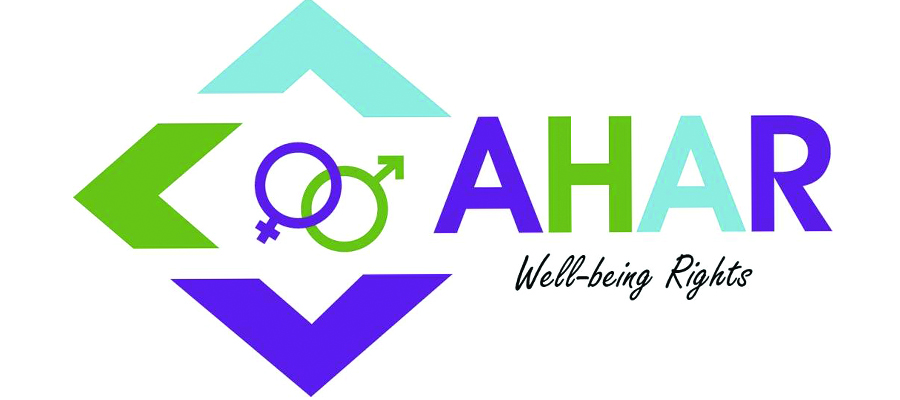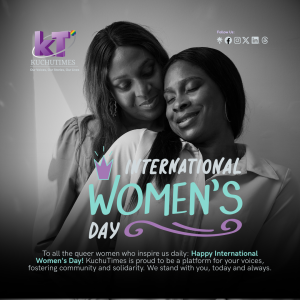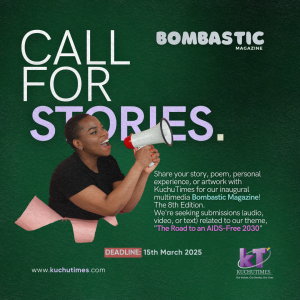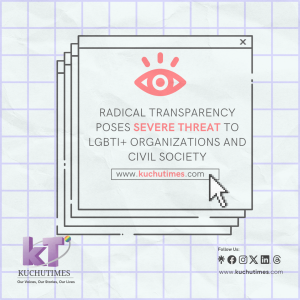Associates for Health Rights- Uganda (AHARUG) recently concluded their first ever virtual regenerative training for LGBT+ activists and other human rights defenders in Uganda. Under the #FireThatFuels project, the initiative that lasted 3 weeks aimed at training focal persons on mitigation measures to help them improve peer based mental health, resilience and regeneration especially during this COVID19 period.
According to Arianna, the Facilitator and Focal Person at FireThatFuels USA, the project is a global network of human rights defenders whose purpose is to renew and reinvigorate movements. When asked why this initiative is important to Uganda's LGBT+ movement, Arianna noted that the network is a space where activists can learn and build and techniques that they need to sustain their movements for the long haul.
"It's not true that our movements are constantly reactionary to crises instead of building towards the deeper vision of changing ourselves and society. We know that activists are often burning out, leaving or being attacked in legacies and the lessons that they have to give to the movements get lost as we lose our most valuable members. We often know that in the struggle, we can lose our sense of joy and possibility which isn’t the kind of world that we are trying to build. Activists can walk out if they are not well and then our movements cannot triumph. So this work is valuable. It supports healing the visions and conflicts that come up in movements, it supports training more regenerative activists, it supports healing of trauma that many activists have faced from their identities and experiences around them as well as the violence that can happen within movements. When such strategies are possible, the movement cannot be stopped. When our visions are more powerful, sourcing from places of joy and possibility and when we have long term activists guiding the new generations of those to come after, we are unstoppable," Arianna elaborated.
She also highlighted that from corona virus crackdowns on LGBTQ safe houses in Uganda, to the escalation of intimate partner violence which people experienced during the lockdown, to the raids on LGBTQ offices and to the attacks activists face daily on the streets and from society as a whole, there has been increased stress and pressure in attacks of violence on and in the community. "Now it's more important than ever to create more regenerative possibilities to enable us heal those wounds and to move forward with our vision," she concluded.
Douglas Mawadri, the Associates for Health Rights Uganda/FTF Coordinator agreed with Arianna that human rights work is precarious and perilous. "Many human rights defenders face traumatic experiences while implementing their roles. The FireThatFuels project mitigates human rights abuses through regeneration and resilience programs. I am happy to associate with all those who not only embraced, but joined to be part of the regenerators, more especially, with all violations and abuses brought about by COVID-19," he shared about the urgency of this project.
The event participants were involved in a number of activities which included experience sharing, learning parts of regeneration circles and discussions on practices to deal with emotional and mental health challenges caused by violations that they are faced with. The sessions inspired healing, support for one another and encouragement to hold safe spaces for oneself, other HRDs and the communities they serve in a bid to build stronger and more united movements.
About AHARUG:
Registered in September 2014, Associates for Health Rights Uganda (AHARUG) is an independent and non-profit organization based in Kampala, Uganda which focuses on advocating for the right to health and well-being, offering psycho-social support, legal aid and conduct research studies on sexual and reproductive health for most at risk populations.
Brief History about the #FireThatFuels project:
#FireThatFuels is a global movement that was created by and for activists. Launched in Athens- Greece by a group of refugee activists, the initiative aimed at change of the conditions in the squats and refugee camps through a Training of Trainers program that brought together fear, trauma, healing and activism to fight for more regenerative and transformative movements and spaces. Their struggles spread to groups in Haiti, New York and now Uganda with the training of LGBTQ activists across East Africa. This work informs and inspires each group to create their own set of trainings and resources that can be used for their movement unique to their needs and empower others.




